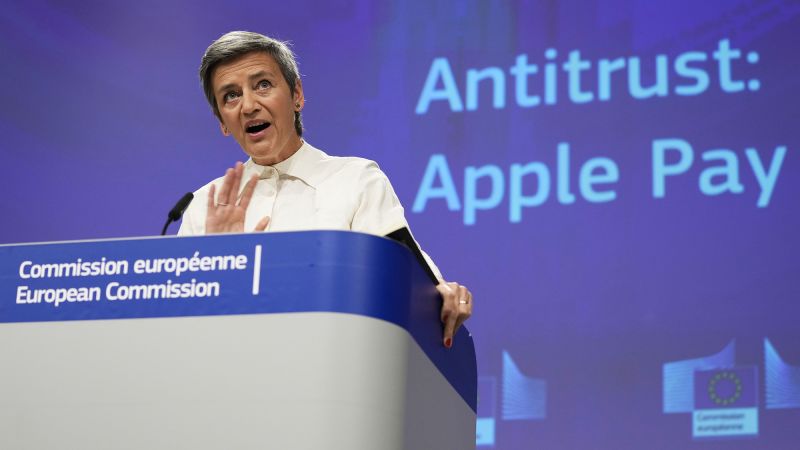In a groundbreaking move, Apple has succumbed to pressure from European regulators to allow rivals access to the contactless payments technology on iPhones, opening up the tap-to-pay feature to other mobile wallets beyond Apple Pay.
This decision comes on the heels of increased regulatory scrutiny of Apple in the European Union, where the tech giant is also facing potential fines for alleged violations of the bloc’s Digital Markets Act.
The European Commission announced the changes on Thursday, emphasizing that they would enhance competition in mobile payments on iPhones across the 30 countries in the European Economic Area.
According to the EU’s competition chief Margrethe Vestager, “iPhone users will (now) be able to use their preferred mobile wallet for payments in stores… while enjoying all the iPhone functionalities, including double click, tap-and-go, and Face ID.”
Under the new agreement, third-party mobile wallet developers will have free access to the near-field communication (NFC) technology used for contactless payments on iPhones. Additionally, iPhone users will be able to select their default mobile wallet within their phones.
Apple confirmed the changes, stating, “Apple is providing developers in the European Economic Area with an option to enable NFC contactless payments and contactless transactions for various purposes from within their iOS apps.”
Although the agreement does not extend to Apple Watches, Vestager noted that the impact of excluding these devices is minimal as the number of users utilizing Apple Watches for payments is relatively small.
The European Commission’s scrutiny of Apple’s tap-to-pay practices dates back to 2020 when they initiated a formal antitrust investigation into Apple Pay. Authorities found that Apple had exploited its dominant market position by restricting access to NFC technology, thereby limiting competition and consumer choice in the mobile payment space.
Vestager emphasized the significance of the changes, stating, “From now on, Apple can no longer use its control of the iPhone ecosystem to keep competing mobile wallets out of the market. Competing wallet developers and consumers will benefit from these changes, fostering innovation and enhancing security in payments.”











